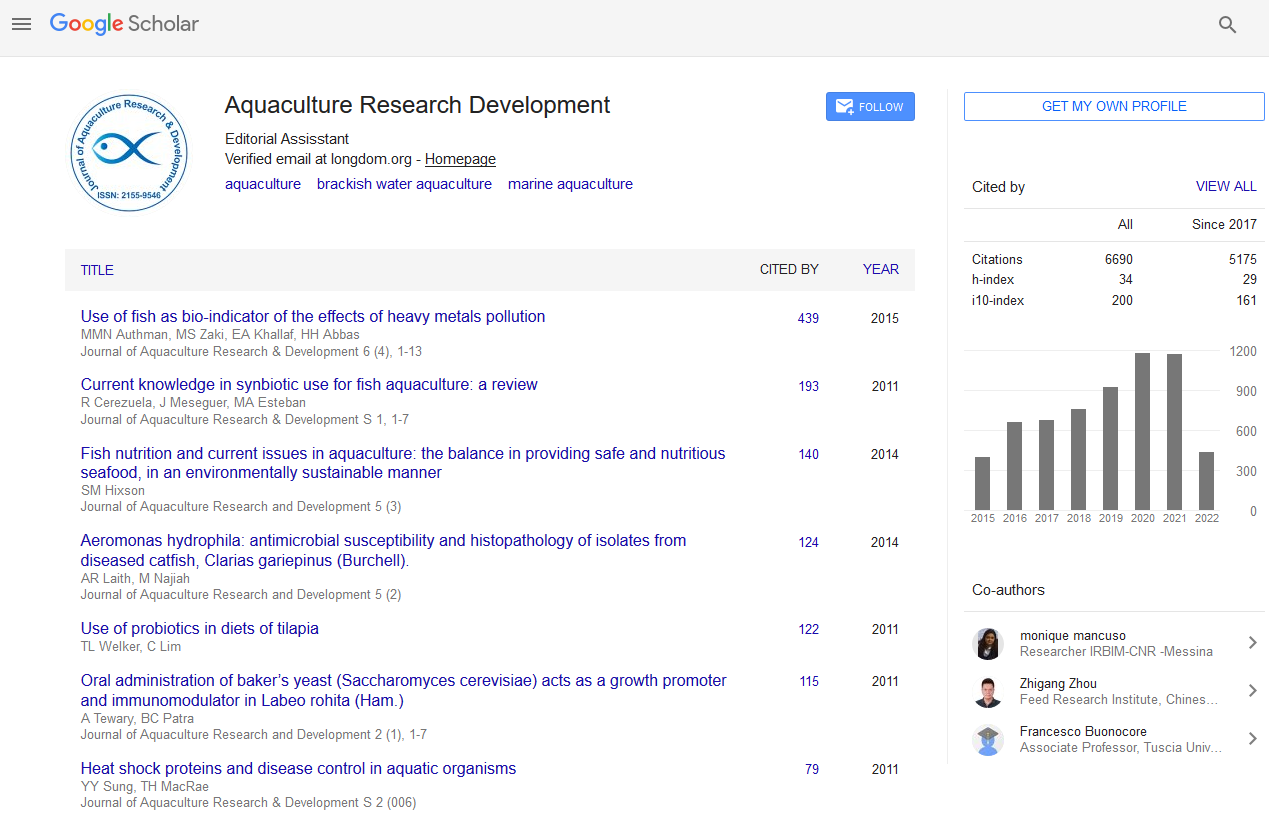PMC/PubMed Indexed Articles
Indexed In
- Online Access to Research in the Environment (OARE)
- Open J Gate
- Genamics JournalSeek
- JournalTOCs
- Scimago
- Ulrich's Periodicals Directory
- Access to Global Online Research in Agriculture (AGORA)
- Electronic Journals Library
- Centre for Agriculture and Biosciences International (CABI)
- RefSeek
- Directory of Research Journal Indexing (DRJI)
- Hamdard University
- EBSCO A-Z
- OCLC- WorldCat
- Scholarsteer
- SWB online catalog
- Virtual Library of Biology (vifabio)
- Publons
- MIAR
- University Grants Commission
- Euro Pub
- Google Scholar
Useful Links
Share This Page
Journal Flyer

Open Access Journals
- Agri and Aquaculture
- Biochemistry
- Bioinformatics & Systems Biology
- Business & Management
- Chemistry
- Clinical Sciences
- Engineering
- Food & Nutrition
- General Science
- Genetics & Molecular Biology
- Immunology & Microbiology
- Medical Sciences
- Neuroscience & Psychology
- Nursing & Health Care
- Pharmaceutical Sciences
Growth, digestibility and energy partitioning of pacific bluefin tuna (Thunnus orientalis) juveniles
11th Global Summit on Aquaculture & Fisheries
May 24-25, 2018 Osaka, Japan
Amal Biswas, Takayuki Ohnishi, Fumiaki Takaoka, Hideki Tanaka and Kenji Takii
Kindai University, Japan
Scientific Tracks Abstracts: J Aquac Res Development
Abstract:
Although the full-cycle culture system of pacific bluefin tuna (PBT), Thunnus orientalis was established in 2002, a lot of areas yet to be clarified to establish an efficient culture system. PBT have high nutrient and energy demands due to their extremely fast growth and high metabolic rate compared to other marine species. Therefore, it has possibility that the energy partitioning for maintenance, losses and growth of PBT is different compared with that of other fish species. To establish an efficient culture technology for this species, it is important to understand the entire picture of how and where the energy from a given diet has been used in a fish. Each 30 PBT juveniles (mean weight 1.1 g) were stocked into three 2500 L tanks. Fish in one tank was fed with formulated feed for 10 days for feces collection and growth performance. Another tank was used to measure the metabolic rate by measuring oxygen consumption (MO2) after fasting the fish for 12 hands sealed the tank with a transparent plastic cover to block the air penetration. As the PBT juveniles are very weak in handling, fish from the remaining tank were measured to consider as the mean initial body weight. The final mean body weight (6.4 g) reached six times larger than initial body weight in 10 days, which indicates a fast growth of PBT juveniles. The digestibility of protein, lipid and energy was 93.7, 83.0 and 82.8%, respectively, slightly lower compared with other marine species. The gross energy (GE) of PBT juveniles was ca. 3629.5 kJ/kg BW/day. The loss through fecal (FE), urinary and branchial (UE+ZE), standard metabolism (SME) and heat increment and voluntary (HiE+HjE) was 17.2, 6.3, 42.1 and 13.7%, respectively. Due to high energy dissipation for SME, the retained energy (RE) was only 20.7%, which is lower than other marine species investigated till now. The results resembled that PBT juveniles have high GE requirement and showed different energy partitioning compared to other species
Biography :
Amal Biswas is an Associate Professor at the Aquaculture Research Institute of Kindai University, Japan. He has got his BSc in Fisheries and Marine Resource Technology and awarded Japanese Monbusho Scholarship to pursue Master and PhD study in the field of Aquatic Biosciences at the Graduate School of Fisheries Science, Tokyo University of Marine Science and Technology, Japan. After successfully finishing the postgraduate studies, Biswas was awarded Post-doctoral fellowship from CoE (Center of Excellence) program of Kindai University, Japan. He has published more than 150 papers in journals, books and conference proceedings, including about 50 papers in international Journals. He has also published several chapters in books including each in both Nova Science Publishers Inc. and Wiley Blackwell Science and articles in newspaper and magazines. He is a Member of different academic committee of Kindai University as well as different professional international society. His research activities cover diverse fields including fish nutrition and aquaculture, fish physiology and reproductive biology.
Email:akbiswas74@hotmail.com


